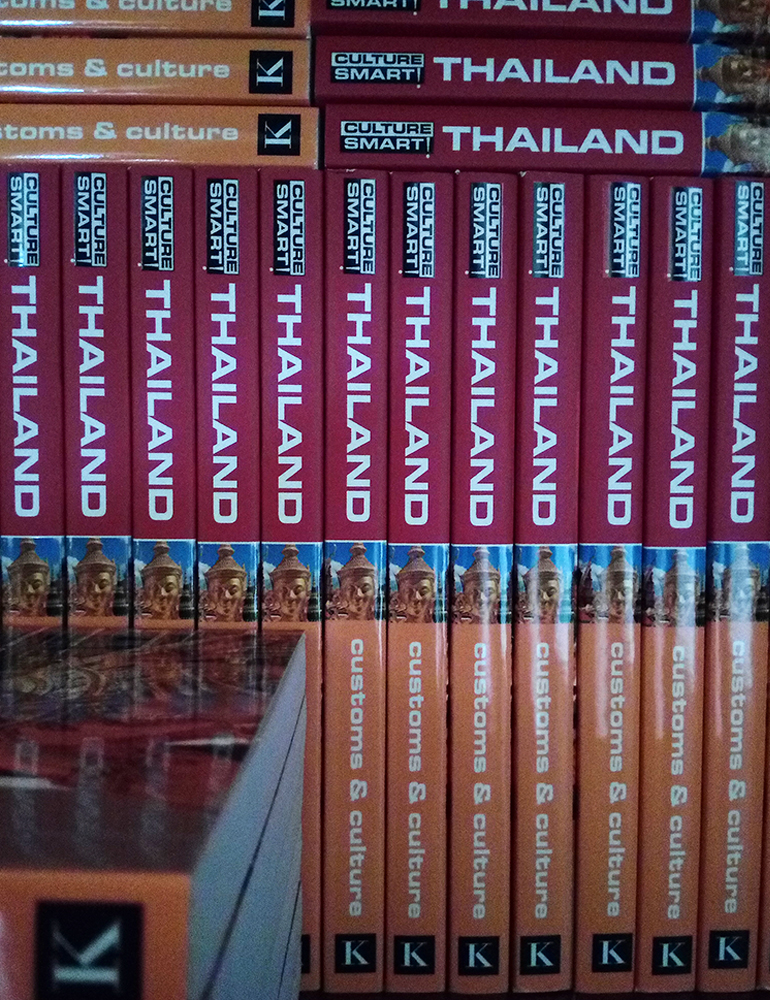So you have been teaching in Thailand, and have picked up enough phrases to order that delicious pad Thai up the street, find a bathroom easily by asking, and haggle your way through any tuk tuk/taxi conversation. But the moment someone asks you a question that doesn’t illicit a ‘yes’ or ‘no’ answer, you fumble with your words. Your brain freezes up, and you can’t think of what to say. What do you do now?
The answer is simple: Study more and study hard.

A Plateau in Language Learning
You have tried so hard to learn what you have, yet you feel like studying isn’t taking you anywhere. What can you do?
Don’t worry, I have been where you are before, and I have struggled with learning Thai. I am nowhere near fluent yet, but I have passed the beginner stages. This “brain freeze” you are experiencing isn’t a headache from a Slurpee at 7-Eleven, but a plateau.
A plateau in language learning, or any skill in life for that matter, is the glass ceiling you get to after putting in so many hours of practice and work into learning a skill, such as learning Thai, and you suddenly find yourself not progressing at the expedient rate at which you were before.
This article will hopefully provide you with the tools (more specifically a sledgehammer) to help you break through that glass ceiling, and to keep progressing in your language learning. Are you ready?

Here are six tips to help you learn Thai, or another language, while teaching and traveling abroad:
1. Speak as much as you can, and make mistakes.
This is number one for a reason. If you want to get better at a skill, then you need to practice it as much as possible. Not only that, but you cannot be afraid to make mistakes. Once you have a fear of making mistakes, your confidence will diminish, along with your motivation for learning the language.
Remember that motto you heard all your life: Learn from your mistakes.
If you don’t make mistakes, then you will not learn. So go out there, start talking, and find out the hard way. Get your elbows dirty and your tongue twisted. If you find yourself struggling and making mistakes, or finding it difficult to locate a phrase or word in your lexicon, then laugh it off. Odds are, the Thai person already is.

2. Learn relevant language for everyday use.
What do I mean by this, you ask?
Well, it is simple. Start by learning phrases that you can use everyday. Granted at this point you’ve already learned phrases like, “How much is this?” and “Is this spicy?”
- Now’s the time to learn the words for places you frequent like ‘restaurant’, ‘train station’, ‘bank’, ‘school’.
- Learn simple descriptive words such as colors and common adjectives.
- Work on your numbers past the hundreds.
- Learn how to ask where someone has been, and where they are going.
- Figure out how to say expressions such as, “How was your day?” and “What food do you like?”
If you are struggling to think of what to learn at first, think of simple phrases you say in English daily, and then make a list out of them. Odds are it will be extensive.

3. Learn in sentences (phrases).
There was a famous linguist that said words by themselves have no meaning. Try it. What does ‘couch’ mean? You can tell me it is something you sit on, sure, but the only reason this word has that meaning is from the context of other words describing what it does.
What I am getting at is that if you focus on learning individual words all time, you won’t understand the context, and you won’t commit them to memory. For example, if you know how to ask, “Where is the bathroom?”, you can now ask, “Where is the bank?”
If you know how to say the phrase, and use it daily, it will be much easier to learn and remember the new vocabulary you are studying. This strategy is called sentence mining; literally mining a sentence for new vocabulary. Google it, it is extremely effective.

4. Do not let grammar rules and translations in your native tongue influence your target language.
I learned from a hyperpolyglot named Stuart J. Raj (Google him too, he will blow your mind), about how to think in meanings. I can’t say I do this all the time, but I try to whenever I speak Thai.
For example, take the word“ไป” (pronounced ‘bpai’) in Thai. It means “to go” in English. But, think about what ‘to go’ actually means. For a Thai person, ‘bpai’ is more along the lines of to move away from the point in space where you are right now, while the word “มา” (pronounced ‘ma’) means coming towards where you are now from a point where you were before.
So, instead of attaching a single word, such as “go” or “come” to a Thai word’s translation, try to think on a deeper level. It will help you in the long run. It sounds difficult, but so is learning a foreign language.
5. Create an immersion environment that will stimulate your learning.
This one is important. What I mean by this is even though you live in Thailand and are surrounded by spoken Thai everyday, you can do so much more to learn.
For starters:
- Listen to Thai talk radio
- Learn some Thai music
- Read Thai children’s books
- Watch T.V. shows in Thai
- Speak out loud when you are alone in Thai
Pretty much what I am saying here is that anytime you think of doing something in English, do it in Thai. You will thank me later.

6. Don’t Speak English unless you absolutely have to, or don’t use it at all.
This is the Mother of all the tips, and also the most difficult. If you are reading this you are most likely an English Teacher in a Thai school, just like me, so you speak English for a living. But, when you are not teaching, challenge yourself to speak only in Thai.
- When you go to the market, speak in Thai.
- When you talk to your Thai friends, even if they speak English fluently, respond in Thai.
- Try to use the language as much as possible, or even promise yourself not to use your mother tongue.
Not falling back on your mother tongue does a lot for your learning process. It allows you to work around words you don’t know when you hear them. If you fall back on English when you are in a conversation, you are limiting your ability to listen, hear, and speak the language. Also, if you fall back on English frequently, you aren’t really trying anymore. I know it’s not possible to do it at a beginners level all the time, but maybe set aside 30 minutes to an hour a day where you pledge to only speak Thai, and increase the amount of time the better you get.

Try, and Try Hard
I know what you are thinking: “But, Max, this is so much to do!”
Guess what, it is.
Learning a foreign language is no simple task, and not for the faint of heart. Plus, it takes hours of time, effort, and requires intense dedication. Trust me, if you don’t put in the time and effort to actually sit down and study an hour or two a day, you will not become fluent. You will also likely not “pick up” the language just by living in Thailand. If you want to learn Thai, or any foreign language for that matter, you have to try, and try hard.
Ask anyone you know who speaks a foreign language that isn’t a native speaker. They will tell you they studied; I guarantee it. I am not trying to sound mean, that is just how it is.
Hopefully my tips point you in the right direction to further your language learning process! Remember, learning languages is fun and a wonderful experience, so embrace it head on!

Leave a Reply